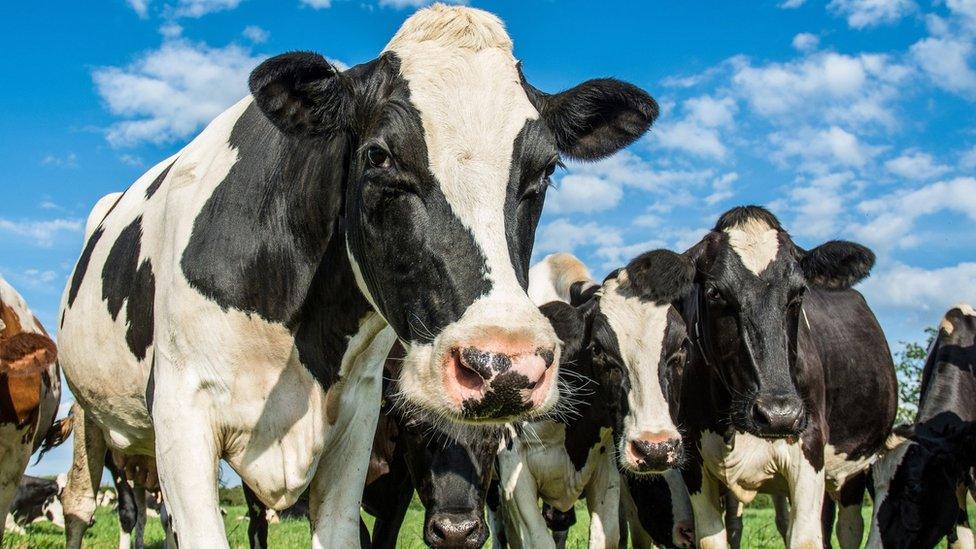Climate change: Welsh farms told to cut more carbon emissions
- Published
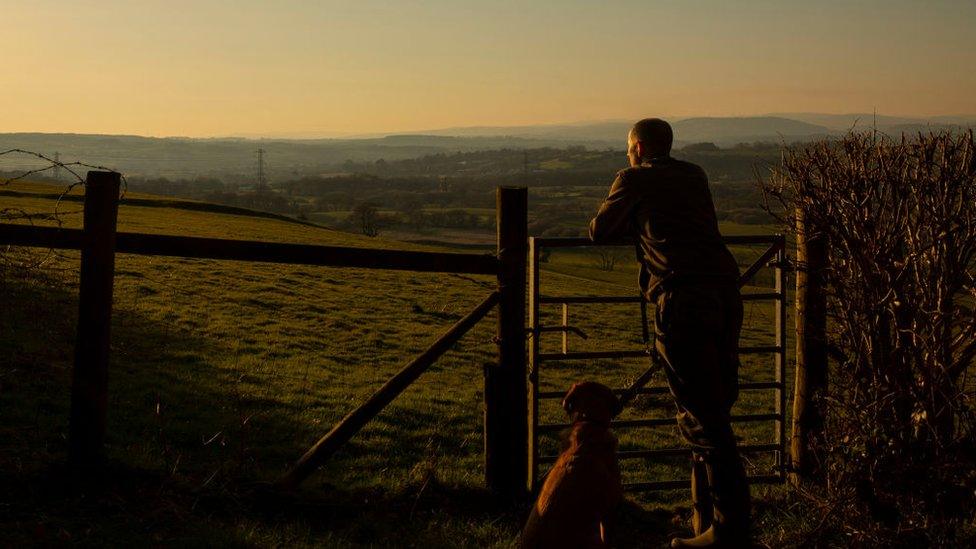
Farming creates 12% of Wales' emissions and farmers have faced criticism for failing to tackle pollution
Welsh farmers must do more to reduce their greenhouse gas emissions despite already being among the world's most sustainable, a new report has said.
It carried out detailed analysis of 20 sheep and beef farms, including researching how much carbon they stored through grassland and trees.
Hill farms in particular were found to have a lower impact than expected.
Agriculture accounts for around 12% of Wales' emissions, much of it methane from livestock.
Government advisers at the Climate Change Committee (CCC) have warned this is a challenging area for Wales, given the importance of farming to rural communities.
It was one of the reasons they suggested aiming for a 95% cut in emissions by 2050, a lower target than for the rest of the UK.
In the coming weeks a first draft of a proposed new Welsh Agriculture Bill is set to be unveiled, with rewarding efforts to fight climate change central to new subsidy arrangements for farmers in future.
The new report by Meat Promotion Wales, alongside researchers from Bangor University and the University of Limerick, says farms should focus on improving productivity.
Optimising the health, welfare and breeding capacity of their animals will mean they produce more meat, more quickly with fewer inputs and emissions.
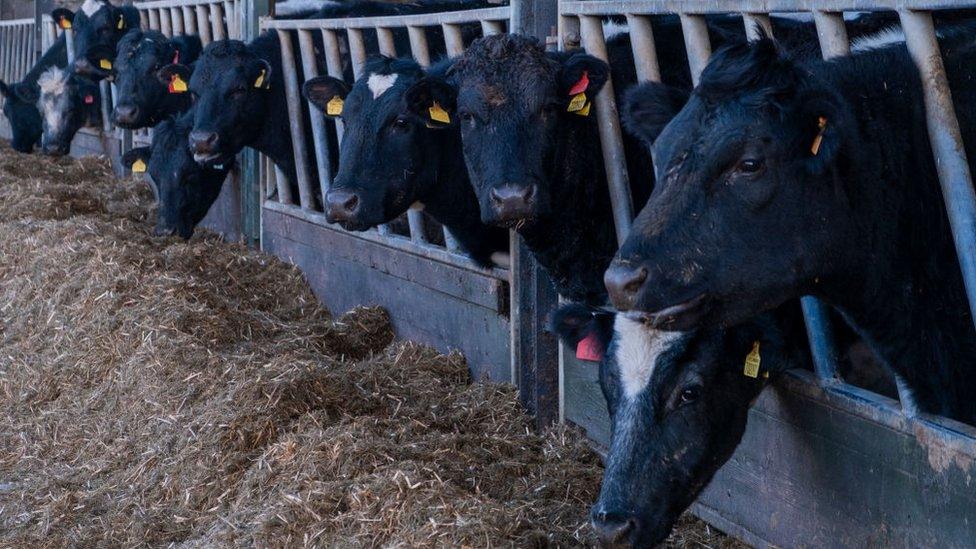
Farmers in the rest of the UK are aiming to go carbon neutral
Improving soil health and levels of carbon sequestration on farms could also have a "significant positive effect on net emissions", while using land for renewable energy generation.
But while the CCC has urged for a fifth of UK farmland to be given over to efforts to store carbon, the report says "maintaining a critical mass of livestock production" is important to "ensure the economic and cultural sustainability of Wales".
It emphasises that Welsh agriculture has among the lowest greenhouse gas emissions of comparable systems worldwide.
This is down to the fact that sheep and beef farms are non-intensive and - thanks to the Welsh climate - have a plentiful supply of grass and water, resulting in far less animal feed having to be imported in.
The report found that beef cattle at the farms studied were responsible for a net 11-16kg of CO2 equivalent emissions per kilo on average, compared with a global average of around 37kg of CO2 equivalent emissions per kilo.
Sheep and lambs were associated with 10-13kg of CO2 equivalent emissions, again placing Wales towards the lowest end of studies conducted elsewhere in the world.
Dr Prysor Williams, senior lecturer in environmental management at Bangor University, said the findings offered a "valuable insight into what Welsh farms are already doing well in terms of sustainability, and where further improvements can be made".
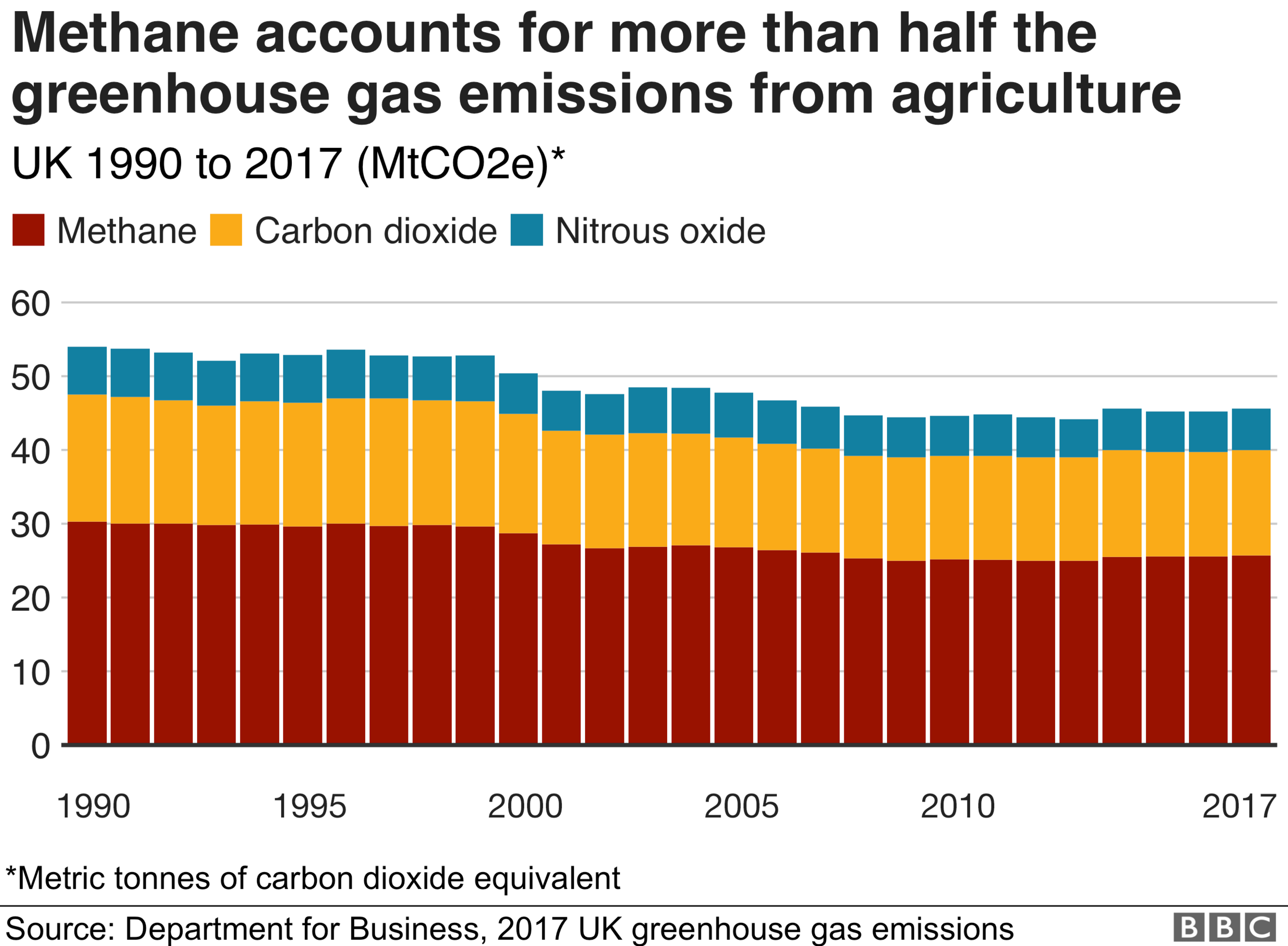
Meat Promotion Wales said it had decided to commission the research because it felt recent debate around agriculture's impact on the environment had centred on a global picture, "which can be misleading".
Gwyn Howells, their chief executive, said the industry had to "do much better in future and... must accept and acknowledge (that) we must play our part in achieving a reduction in emissions in line with the Paris Agreement by 2050".
He said Welsh farmers could sell their meat with confidence as a "sustainable product" but also had to "hone production methods" to minimise and mitigate environmental impact in future.
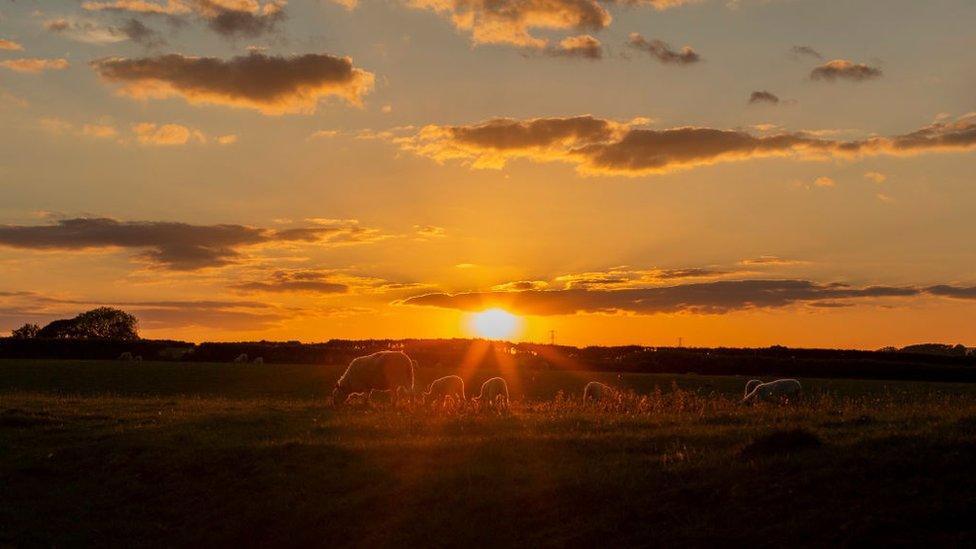
CO2 equivalent emissions from Welsh sheep and lambs were among the lowest in the world
Katie-Rose Davies, whose family have run their hill farm for almost 100 years, has about 1,000 south Wales mountain ewes and 40 suckler cows.
"We farm using a range of sustainable and traditional methods - lots of things that we do are focused on really minimising our environmental impact," said the agricultural lecturer from Nantymoel in Bridgend county.
"So mixed grazing for instance - cattle and sheep together - we find that improves the Molinia or mountain grass which creates a better environment for peat which stores carbon and also creates new habitats for rare species such as the Golden Plovers we have here on the farm.
"It's really important that people understand the difference between farming here in Wales and the industry globally - there's been a lot of talk about reducing how much red meat you eat... but it should be about buying meat that has been sustainably produced."
- Published5 November 2020
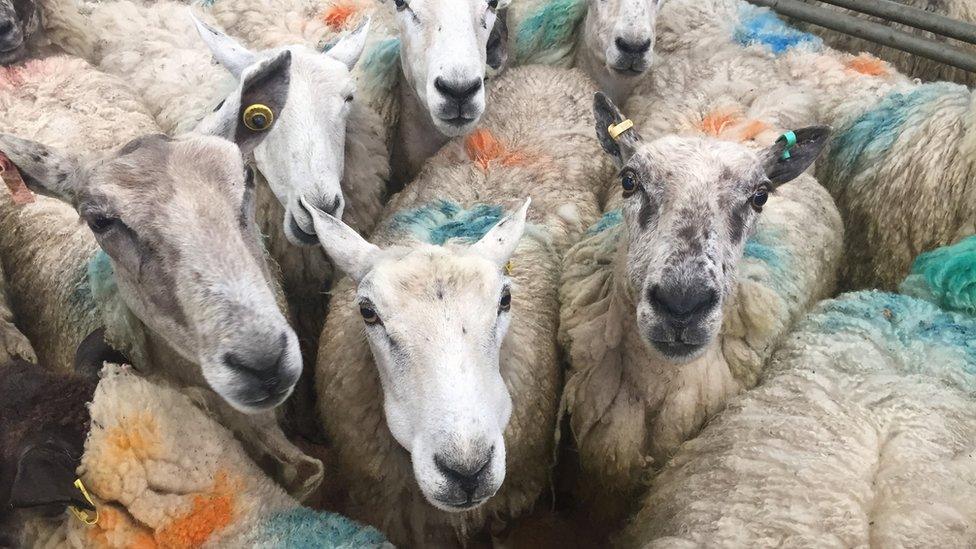
- Published4 November 2020

- Published7 October 2020
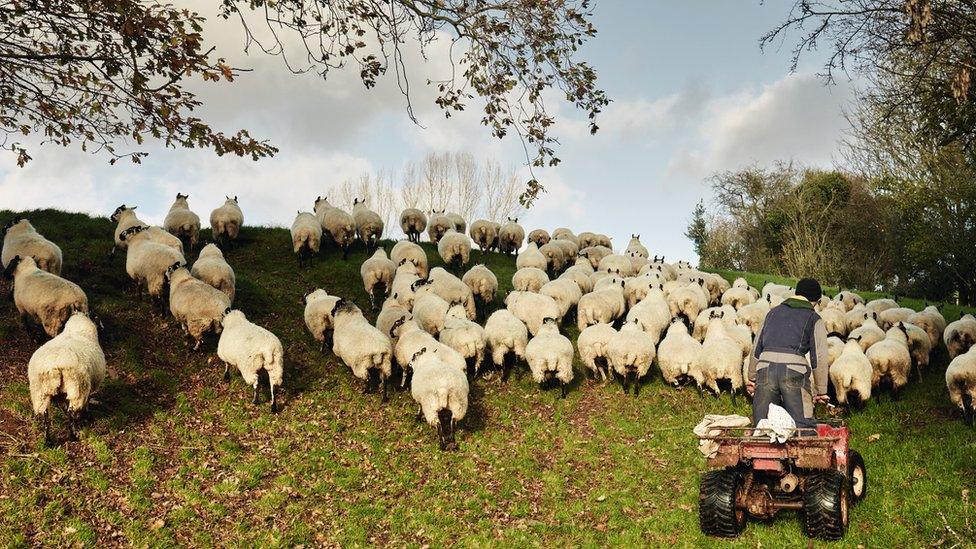
- Published27 January 2020

- Published22 October 2019
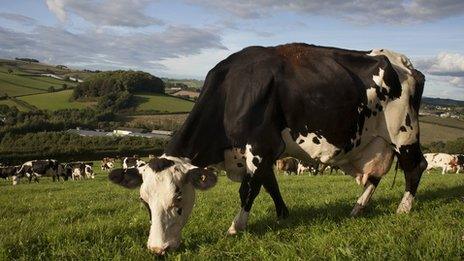
- Published22 October 2019
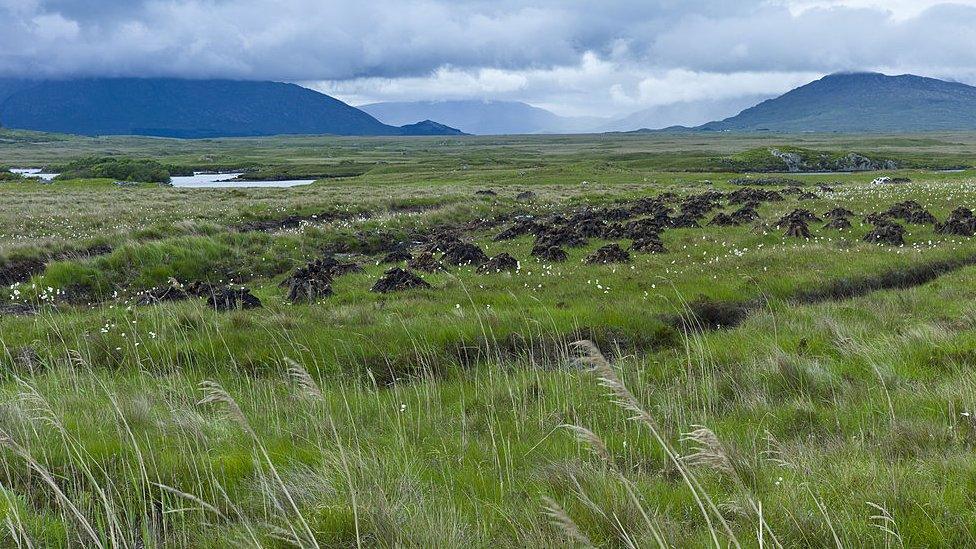
- Published10 September 2019
